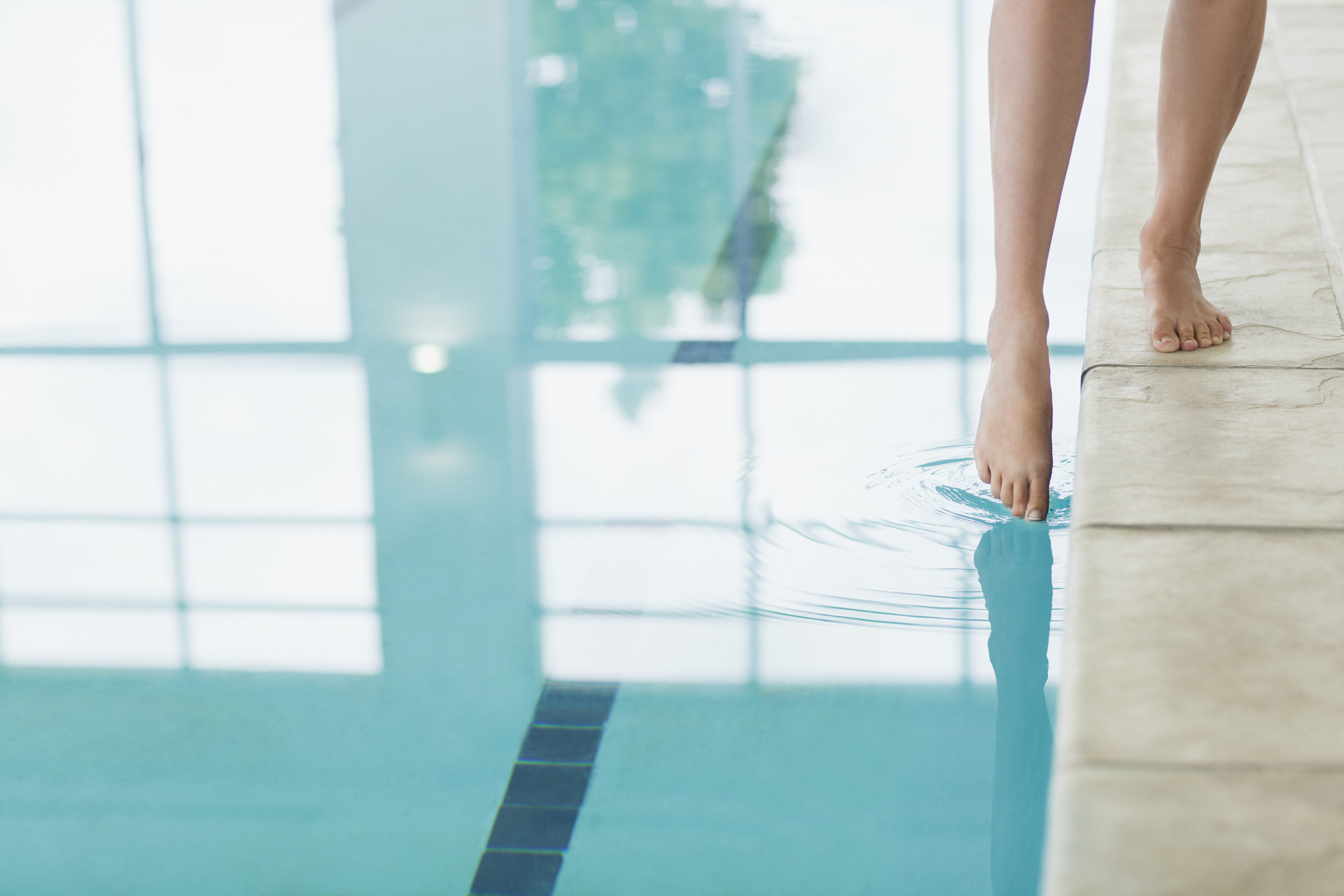Key points
- Head lice, MRSA (methicillin-resistant Staphylococcus aureus), and pinworm infection are unlikely to be spread through recreational water, like pools, hot tubs, or splash pads.
- These infections, however, can be spread by contact with people or objects when visiting these recreational water venues.
- Learn how to protect yourself.

Exposure
Head lice
Head lice are unlikely to be spread through pool, hot tub, or splash pad water.
Head lice mainly spread by direct, head-to-head with the hair of a person infested with lice. Head lice move by crawling; they cannot hop or fly. Head lice survive by holding on tightly to hair, so are unlikely to come off a person's head in the water. Head lice can also be spread by sharing towels, brushes, or other items that have been in contact with an infected person’s hair.
Chlorine levels used at pools, hot tubs, or splash pads do not kill head lice.
MRSA
There have been no reports of MRSA spreading through recreational water. MRSA does not survive long in water that has proper disinfectant (chlorine) and pH levels.
There is a potential risk of MRSA spreading through direct contact with another person's MRSA infection or direct contact with contaminated objects and surfaces. Direct contact can happen when you touch another person’s MRSA infection. Indirect contact can happen when you share items (like towels or razors) or touch surfaces (like handrails or locker room benches) contaminated with MRSA. MRSA is most likely to cause infection when the germ comes into contact with an uncovered cut or scrape.
Pinworm infection
Pinworm infections are rarely spread through recreational water. Pinworm infections occur when a person swallows pinworm eggs picked up from contaminated surfaces or feces (poop). Although chlorine levels found in pools are not high enough to kill pinworm eggs, the presence of a small number of pinworm eggs in thousands of gallons of pool water makes the chance of infection unlikely.
Prevention steps and strategies
Head lice
To protect yourself from head lice at the pool, do not share towels, brushes, or other items that come into contact with someone else's hair. If you already have lice, do not swim or wash your hair within 1–2 days of treating it with anti-lice shampoo—these actions will make the treatment less effective.
MRSA
All swimmers
- Don't touch any bumps, cuts, infected areas, or bandages on another person's skin.
- Don't share items, like towels or razors, with other people.
- Keep cuts and scrapes clean and cover them with bandages.
- Talk to pool, hot tub, and splash pad operator to make sure they:
- Clean frequently touched surfaces
- Wash towels after each use
- Maintain proper disinfectant level and pH in the water to kill germs
- Clean frequently touched surfaces
If you have a skin infection
- It might be difficult to keep infected skin completely covered with watertight bandage while in the water, so it is best to stay out of the water. If you do go in the water, completely cover any bumps, cuts, or infected areas with watertight bandages.
- Practice good hygiene by regularly washing hands with soap and water.
- Don't let other people touch your bumps, cuts, infected areas, or bandages.
Pinworm infection
Washing your hands with soap and warm water after using the toilet, changing diapers, and before handling food is the best way to prevent pinworm infection at recreational water venues.
